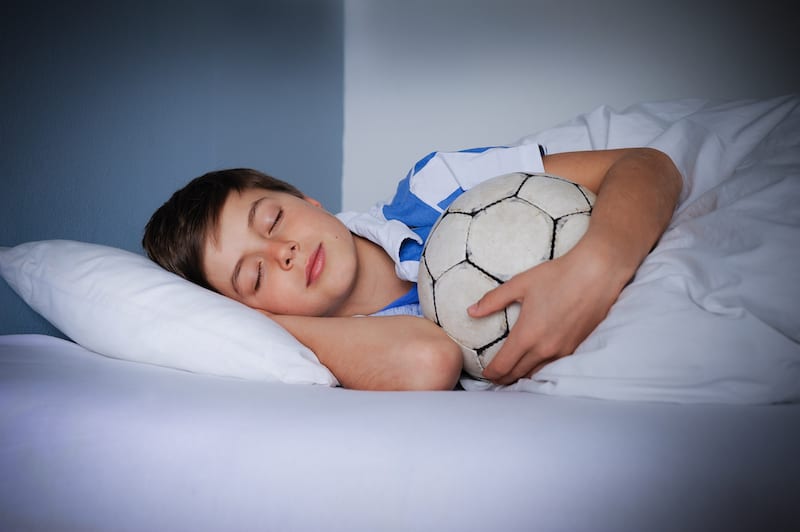In the realm of sports, where split-second decisions and peak physical conditioning can make all the difference between victory and defeat, one often overlooked factor plays a critical role in determining an athlete’s performance: sleep. The significance of proper rest and its impact on athletic prowess is a subject that continues to intrigue and baffle scientists and sports enthusiasts alike. In this article, we delve into the intricate relationship between sleep and athletic performance, shedding light on the crucial role that a good night’s rest plays in unlocking an athlete’s full potential.

Unlocking the Power of Deep Sleep for Muscle Recovery
When it comes to optimizing athletic performance, one often overlooked component is the power of deep sleep for muscle recovery. Sleep plays a crucial role in the body’s ability to repair and rebuild muscles after intense physical activity. During deep sleep, the body releases growth hormone, which is essential for muscle growth and repair.
Research has shown that individuals who consistently get an adequate amount of deep sleep experience faster muscle recovery, improved muscle strength, and overall better athletic performance. In addition to muscle repair, deep sleep also helps regulate the body’s metabolism, reduce inflammation, and boost the immune system – all of which are vital for athletes looking to perform at their best.
For athletes looking to unlock the power of deep sleep for muscle recovery, incorporating good sleep hygiene practices is essential. This includes establishing a regular sleep schedule, creating a relaxing bedtime routine, and optimizing your sleep environment for comfort and darkness. By prioritizing deep sleep, athletes can take their performance to the next level and achieve their fitness goals more efficiently.
Maximizing Cognitive Function and Reaction Time through Quality Sleep
Adequate and quality sleep plays a crucial role in enhancing athletic performance. It is during sleep that the body repairs and regenerates itself, allowing athletes to recover from intense training sessions and competitions. When athletes consistently get enough sleep, they are better able to maximize their cognitive function and reaction time, which are essential for peak performance.
Sleep deprivation can have detrimental effects on athletic performance. Lack of sleep can lead to decreased focus, slower reaction times, and impaired decision-making skills. Athletes who do not prioritize sleep may find themselves more prone to injuries, as their bodies are not given the necessary time to heal and rest. In contrast, athletes who make sleep a priority are more likely to have quicker reflexes, sharper mental awareness, and overall better performance on the field or court.
| Date | Hours of Sleep | Performance Rating |
|---|---|---|
| Jan 1 | 8 hours | 9/10 |
| Jan 2 | 6 hours | 6/10 |
| Jan 3 | 9 hours | 8/10 |
It is essential for athletes to establish a consistent sleep schedule and prioritize rest to ensure that they are performing at their best. Strategies such as creating a relaxing bedtime routine, avoiding screens before bed, and maintaining a comfortable sleep environment can all contribute to better sleep quality. By recognizing the importance of quality sleep in maximizing cognitive function and reaction time, athletes can enhance their overall athletic performance and achieve their goals on the field.
The Impact of Sleep Deprivation on Endurance and Injury Risk
Research has shown that sleep deprivation can have a significant impact on athletic performance, particularly in terms of endurance and injury risk. When athletes do not get enough sleep, their reaction times slow down, their coordination is affected, and their muscle recovery is compromised. This can lead to a decrease in overall performance and an increased risk of injuries.
Not getting enough sleep can also impair an athlete’s cognitive function, making it difficult for them to make quick decisions and react to changing situations on the field or court. This can be especially detrimental in team sports where split-second decision-making is crucial for success.
On the flip side, athletes who prioritize getting enough quality sleep experience benefits such as improved reaction times, better coordination, faster muscle recovery, and a reduced risk of injuries. In fact, sleep has been referred to as the ”secret weapon” of elite athletes, with some even going as far as to track their sleep patterns and make it a top priority in their training regimen.
Creating a Sleep Routine to Optimize Athletic Performance
Adequate sleep is essential for optimizing athletic performance. Not only does it help in physical recovery and muscle repair, but it also plays a significant role in cognitive function, decision-making, and overall well-being. Creating a consistent sleep routine can make a significant difference in an athlete’s performance on the field or in the gym.
Here are some tips to help you create a sleep routine that will optimize your athletic performance:
- Set a consistent bedtime: Going to bed at the same time every night helps regulate your body’s internal clock and improve the quality of your sleep.
- Avoid screens before bedtime: The blue light emitted by screens can disrupt your body’s production of melatonin, making it harder to fall asleep. Try to avoid screens at least an hour before bedtime.
- Create a relaxing bedtime routine: Engage in calming activities before bed, such as reading a book, taking a warm bath, or practicing mindfulness meditation, to signal to your body that it’s time to wind down.
In conclusion, the importance of sleep in athletic performance cannot be overstated. The quality and quantity of rest have a direct impact on an athlete’s physical and mental capabilities, making it essential for optimal performance. By prioritizing sleep and incorporating proper rest strategies into training routines, athletes can enhance their overall performance and achieve their full potential. So next time you hit the sack, remember that a good night’s sleep may be the key to unlocking your athletic prowess. Sweet dreams, and may your performance soar to new heights.



Comments are closed.